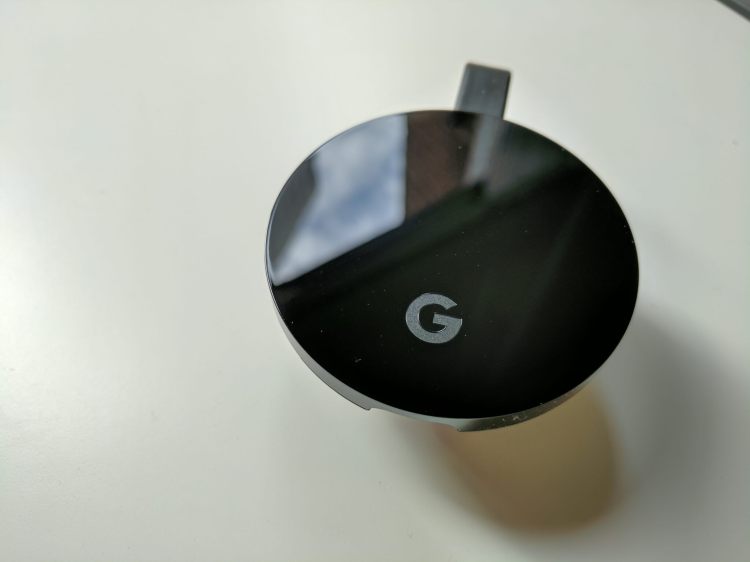About one week ago, Google started shipping its newest Chromecast device, the Chromecast Ultra, which is capable of streaming 4K and (high-dynamic range) HDR video on 4K displays. It costs $69, which comes out to $35 more than the Chromecast that Google released last year, and the original model that Google started selling in 2013.
I’ve had some time to experiment with the new gadget in the past few days, on a 4K TV and a 1080p TV, and I have some initial impressions. I’m sharing them with the hope that they’ll help you figure out if you want to buy the new model. (The Amazon Fire TV and some Roku boxes support 4K, but the Apple TV currently does not.)
When you take it out of the box, you’ll notice that the Chromecast Ultra feels fancier than its predecessors. Gone is the Frisbee-like Chrome logo on the front of the dongle. Instead, you find Google’s increasingly pervasive “G” logo on glossy black plastic. In the box, you also find the “G” and the glossy plastic on the power adapter, which contains an Ethernet port. That will come in handy when the Wi-Fi connection in the room where you want to watch isn’t very strong. Until this point, you had to buy an Ethernet adapter separately. Plus, the distinctive look of the adapter will help you identify it quickly when you need to unplug it from a power strip.
One thing that makes this device less than necessary for many people is the dearth of 4K video that you can watch. That will change over time, as an increasing number of cameras — including the Google Pixel — let you shoot in 4K. And Google says that Google Play Movies & TV will introduce 4K content before the end of this year.
If you have a 4K TV, you probably already know there isn’t a ton of 4K material that you can watch right now. And you’d probably be willing to part with $69 if it means there will be more content that you can watch in 4K.
Still, the question I had when Google launched the Chromecast Ultra is whether it will be that much better than previous Chromecasts. At the event where the Chromecast Ultra was unveiled, Google’s Mario Queiroz said that the product provides “an even crisper picture” and loads content 1.8 times faster than older versions.
So I sat down in front of a 4K TV — a 49-inch Sony Bravia UltraHD Smart TV — and watched the same 4K videos on the new Chromecast and the Chromecast 2 from 2015 to see what I could see.
I was expecting more of a difference, frankly. Many videos looked only a little bit sharper and flowed just slightly more smoothly on the Chromecast Ultra. Video loaded faster on the new model for just one video that I watched.
For the discerning 4K users among us, this may be worth an upgrade from the Chromecast 2. If you’re less picky, you could stick with the Chromecast 2. If you have the original Chromecast, now would be a good time to upgrade — come on, you’ve got a 4K TV. If you don’t have any Chromecast, I think this would be a good purchase.
What if you don’t have a 4K TV? You may be wondering if you should upgrade from a previous model, or if this Chromecast is so good that it’s finally worth the plunge.
On my 50-inch Vizio Full Array LED Smart TV, the best Chromecast for the money, to me, is last year’s model. With this year’s version, you might notice a few more details in videos, and they might look a tiny bit smoother, but that’s all. In my testing, videos loaded at about the same speed on all three generations of Chromecasts.
Given that, I’d say if you have a first-generation Chromecast, you could upgrade to last year’s model without worrying that you’ll miss out on a lot with the 4K version. If you have a second-generation Chromecast, try to resist the FOMO and stick with what you’ve got. If you don’t have a Chromecast, well, I’d say you should go for last year’s model.
VentureBeat's mission is to be a digital town square for technical decision-makers to gain knowledge about transformative enterprise technology and transact. Learn More

